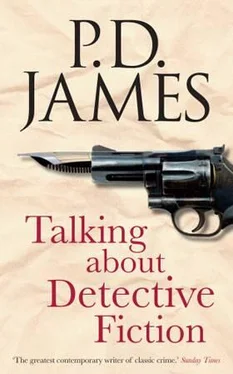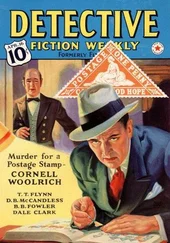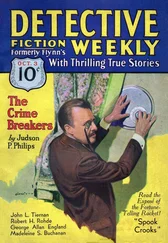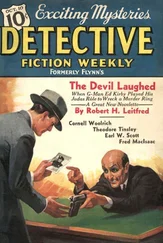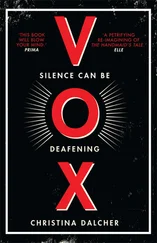Despite the turbulent antagonisms of postwar Europe and the growth of fascism, the 1930s were years of remarkable freedom from domestic crime, and although there must have been areas, particularly of the inner cities, which were at least as violent as they are today, pictures of this disruption were not being brought daily into people’s sitting-rooms by television and the Internet. It was therefore possible to live in a country town or in a village and feel almost entirely secure. We can read an Agatha Christie novel set in what seems a mythical village, in which the inhabitants are happily reconciled to their allotted rank and station, and we feel that this is an exaggerated, romanticised or idealised world. It isn’t, not altogether. Dorothy L. Sayers describes it in Busman’s Honeymoon . Harriet is speaking of her husband, Lord Peter:
She understood now why it was that, with all his masking attitudes… he yet carried about with him that permanent atmosphere of security. He belonged to an ordered society and this was it. More than any of the friends in her own world he spoke the familiar language of her childhood. In London anybody at any moment might do or become anything, but in a village, no matter what village, they were all immutably themselves, parson, organist, sweep, duke’s son and doctor’s daughter, moving like chessmen upon their allotted squares.
It is precisely this view of England that in general the 1930s’ detective writers, particularly women, were portraying: middle-class, hierarchical, rural, peaceable. But it was an age of underlying anxiety. Before the institution of the welfare state, the dread of unemployment, of sickness, of economic failure was very real, and the growing power of the fascist dictators abroad threatened the possibility of a further war before the country had recovered from the appalling carnage, social upheaval and personal tragedies of the 1914-18 conflict. Already the posturing of home-grown fascism was provoking violent clashes, particularly in London ’s East End. It was small wonder that people longed for that “permanent atmosphere of security” and were able to find it, at least temporarily, in a popular form which was both ordered and reassuring.
The differences between the hard-boiled school and such Golden Age writers as Agatha Christie, Dorothy L. Sayers and Michael Innes, are so profound that it seems stretching a definition to describe both groups under the same category. If the British detective story is concerned with bringing order out of disorder, a genre of reconciliation and social healing, restoring the mythical village of Mayhem Parva to prelapsarian tranquillity, in the United States Hammett and Chandler were depicting and exploring the great social upheavals of the 1920s-lawlessness, prohibition, corruption, the power and violence of notorious gangsters who were close to becoming folk heroes, the cycle of boom and depression-and creating detectives who were inured to this world and could confront it on their own terms.
Dashiell Hammett (1894-1961) had a tough and under privileged youth working on the railway, then as a Pinkerton detective, and as a soldier in the First World War. He was discharged as tubercular, married his hospital nurse and had two children, supporting his family by writing short stories for the pulp magazines that were extremely popular during the 1920s. The editors demanded violent action, vividly portrayed characters and a prose style ruthlessly pruned of all inessentials; all this Hammett provided.
Hammett’s stories are not about restoring the moral order, nor are they set in a world in which the problem of evil can be solved by Poirot’s little grey cells or Miss Marple’s cosy homilies, a world as innocuous as flower-arranging. Hammett knew from traumatic personal experience how precarious is the moral tightrope which the private investigator daily walks in his battle with the criminal. The first of his detectives has worked for fifteen years as an operative for the Continental Detective Agency and is known only as “Continental Op.” It is appropriate that the Op is unnamed. There is nothing subtle about him and little we expect to know-except his age, thirty-five, that he is short and fat, and that his only loyalty is to the Continental Detective Agency and his job. But there is an honesty and directness about this personal code, limited as it may be.
“I like being a detective, like the work. And liking work makes you want to do it as well as you can. Otherwise there’d be no sense to it.”
The Op tells his own story, but flatly, without explanations, excuses or embellishments. He is as ruthless as the world in which he operates, a violent gun-carrying dispenser of the only justice he recognises. Short and fat he may be, but in Red Harvest (1929) he takes on the combined strength of the police, corrupt politicians and gangsters to cleanse the city of Personville, meeting violence with violence. His loyalty to the job means that he doesn’t take bribes; indeed he seems impervious to the lure of money-in this, at least, he is superior to the company he keeps. He is naturally solitary, and how could he be otherwise with such a job in a corrupt and lawless world? When a woman attempts to seduce him, his response is a brutal rejection; later, to get rid of her, he shoots her in the leg, but not without a certain compunction: “I had never shot a woman before. I felt queer about it.” There is not much that the Op feels queer about.
Hammett’s most famous detective, Sam Spade, whose hunting-ground is San Francisco, appears only in one full-length novel, The Maltese Falcon (1930), but this book, his best known, and the film in which Humphrey Bogart portrayed the detective, have ensured that Spade has become the archetypical hard-boiled private eye. Like the Op, Spade’s only loyalty is to his work and to his colleagues. He is classless, younger and more physically attractive than the Op, but there is a cruelty in his ruthlessness and he is the more immoral of the two, capable of falling in love with a woman but never putting love above the demands of the job.
After the success of The Maltese Falcon , Hammett was offered a job as a screenwriter in Hollywood. There he met the playwright Lillian Hellman and began a love affair which lasted until his death. After this move to the highly lucrative and hedonistic world of Hollywood, he began drinking heavily and lived in a way which a friend described as making sense “only if he had no expectations of being alive much beyond Thursday.” During the Hollywood years he became involved with left-wing political causes and in 1951 was sentenced to six months in prison because he would not give evidence against Communists who had jumped bail. After his release his books were proscribed, and during his final ten years he lived on the charity of others. He would not be the only writer whose talent was destroyed by money, self-indulgence and the egregious temptations of fame, but perhaps for him the temptations were the more irresistible because of the penury and struggles of those early years.
Might Hammett have written another novel as good as The Maltese Falcon if he had resisted that invitation to move to Hollywood? I think it doubtful. It may be that by then he had said all he wanted to and that his talent was exhausted. Nevertheless, his achievement remains remarkable. In a writing career of little more than a decade he raised a commonly despised genre into writing which had a valid claim to be taken seriously as literature. He showed crime writers that what is important goes beyond an ingenious plot, mystery and suspense. More important are the novelist’s individual voice, the reality of the world he creates and the strength and originality of the writing.
The early life of Raymond Chandler, born in 1888, was markedly different from that of Hammett. He was educated in England at Dulwich College and returned to the United States in 1912, where he had a successful business career before retiring in 1933 to devote himself to writing. Like Hammett, he learned his craft by contributing to the pulp magazines but wrote later that he rejected the editor’s insistence in cutting out all descriptions on the grounds that the readers disliked anything that held up the action.
Читать дальше
